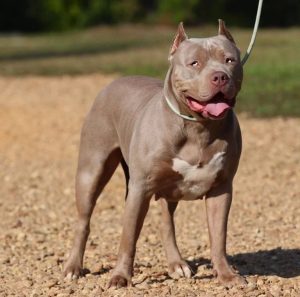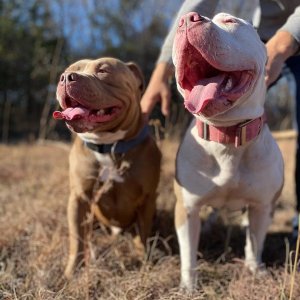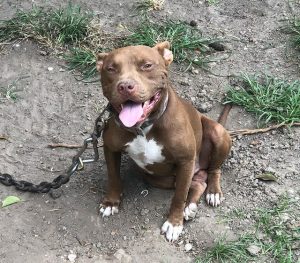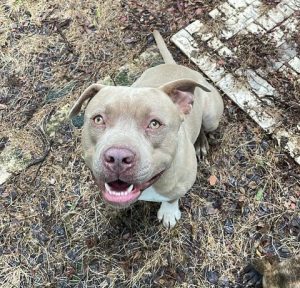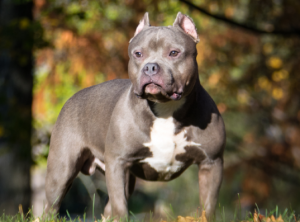Gator Pitbull
What is a Gator Pitbull?
The Gator Pitbull, often interchangeably called the Alligator Pitbull or Gator Mouth Pitbull, is a distinct lineage within the broader Pitbull breed. Rooted in a rich history, the name “Gator” or “Alligator” in the breed’s title traces back to two renowned fighting dogs known for their tenacity. Over time, these dogs gave rise to what many now recognize as the Alligator Pitbull, celebrated for its unparalleled fighting prowess.
However, it’s essential to understand that while their lineage may have combat origins, the primary purpose of breeding the Gator or Alligator Pitbull has evolved significantly over the years. Contrary to popular misconceptions, with the right upbringing and environment, these dogs are incredibly loyal, intelligent, and eager to please. Their protective nature, combined with their affectionate demeanor, makes them cherished family pets. As highlighted by the American Kennel Club, modern breeding practices prioritize temperament and sociability over combat traits.
Personal Anecdote: “My introduction to the world of Alligator Pitbulls was truly enlightening. Daisy, an Alligator Pitbull I had the pleasure of meeting, was a gentle soul. Her friendly demeanor and affectionate nature quickly dispelled any myths surrounding the breed, reinforcing my belief in their potential as loving companions.”
History of the Gator Mouth Pitbull
Origins and Ancestry
The Gator Pitbull lineage traces back to two renowned pit bulls: Plumbers’ Alligator and Rodriguez’s Gator Rom. While these dogs adhered to the breed standard, their reputation wasn’t solely based on their appearance or conformity. Their fame stemmed from their unparalleled prowess in the dog-fighting rings.
Historical Context
Historically, dog fighting was a prevalent and accepted form of entertainment. Pitbulls, known for their strength and tenacity, were often the stars of these brutal events. The practice, although now illegal and widely condemned, unfortunately persists in some underground circles.
The inception of the Pitbull breed was for combat purposes. By crossbreeding the sturdy English bulldog with agile terriers, a compact yet formidable breed emerged. Initially, these dogs were employed in ratting contests, where they were tasked with exterminating rodents. However, their bravery and resilience soon led them to the dog-fighting rings.
Legacy of the Gator Pitbulls
Plumbers’ Alligator and Rodriguez’s Gator Rom stood out even among other fighting Pitbulls. Their resilience in the face of injury and their consistent victories against opponents solidified their legendary status. Recognizing their exceptional traits, breeders mated them with various other Pitbulls, aiming to produce the ultimate fighting dog.
Transition to Companionship
As societal views evolved and dog fighting became less popular and eventually outlawed, the focus shifted. Breeders started emphasizing the Pitbull’s potential as loyal companions rather than fierce combatants. The Gator Pitbull lineage, with its storied history, continued to be sought after. However, the modern-day Gator Pitbull is bred for its temperament and compatibility as a family pet, rather than its fighting capabilities.
The Gator Pitbull’s history is a testament to the breed’s resilience and adaptability. From the fighting rings to family homes, these dogs have showcased their versatility, proving that with the right environment and upbringing, they can be loving and devoted companions.
What Does a Gator Pitbull Look Like?
They commonly have blue, brown, or hazel eyes, much like other Pitbulls, and are low-maintenance dogs due to their short coat. They require little maintenance and upkeep. They don’t shed much, but brushing them once a week with a glove brush should be enough.
Instead of the aggressive and alert muscular body language seen in pitbull terriers, they appear charming, but despite their adorable appearance, their bodies are pretty strong, giving them a solid impression. Their coats are shiny and short and come in a variety of lovely colors, such as Black Gator, Brindle Gator, Gator Colby, and the following:
Red Nose Gator Pitbull
The second most uncommon color combination. Only white and merle Pitbulls are uncommon. They were initially developed for their fiery personalities. This implies that they were often bred as combat dogs when they were first developed.
White Gator Pitbull
A variant of the Pitbull breed, although uncommon, an all-white Pitbull is considered a standard coat color and not the result of albinism. A white Pitbull, unlike an albino dog, has more apparent skin pigmentation and colored eyes.
Blue Nose Gator Pitbull
Blue Nose Gator Pitbull is known for being aggressive and fighting dogs. In contrast, if they are well-trained and have frequent human connections, they are highly affectionate, friendly, lively, and energetic dogs. Blue Nosed Pitbulls are a variant of the American Pitbull breed, not a unique breed.
Gator Pitbull Height and Weight
Gator Pitbulls are usually bigger or heavier than other varieties. Pitbulls typically weigh 30-65 pounds, with gator Pitbulls weighing 60-80 pounds. They are also shorter than the typical person.
The average Pitbull is 17-21 inches long. On the other hand, Gator pits may reach a height of 15-20 inches.
Gator Pitbull Characteristics
The Gator Pitbull may have started as a fighter, but they are now far more suited to friendship. They have an overly friendly attitude, as do all Pitbulls.
They like human connection and will discover innovative methods to capture your attention. They are highly curious and will quickly investigate anything new or fascinating.
They are dynamic, yet they also have a laid-back side. They will cheerfully play till you are exhausted. They are also willing to cuddle up and sleep most of the day.
They are tough and fiercely protective of their loved ones. The gator pit will battle to the end to defend the people they care about. It’s crucial to understand that protectiveness differs from aggressiveness in a well-trained dog.
Gator Pitbulls Temperament: Are They Aggressive?
Given their past, it can be challenging to think that Gator Pitbulls are not ferocious.
They were bred for combat but were also designed to be submissive to their masters. This is basic logic. Dog fighters wanted the dogs to fight, but they also wanted to feel comfortable around them.
There have also been generations of gator pits reared as pets rather than warriors. This has helped to keep them from becoming unduly aggressive.
The American Temperament Test also predicts their personality.
The temperament test assesses numerous characteristics of personality, including aggressiveness and kindness. This test is passed by 86% of Pitbulls. Only 85% of German Shepherds, which are not known to be aggressive, pass. Chihuahuas, for example, barely pass 70% of the time.
Gator Mouth Pitbull Puppies: Training Overview
Gator Pitbulls, often recognized for their distinctive appearance and lineage, have become a sought-after breed among enthusiasts. Originating from the South, these dogs have a rich history intertwined with myths and misconceptions. While many claim to possess a “Gator Pitbull,” it’s essential to understand their true lineage and characteristics.
Training Your Gator Pitbull Puppy
Gator Pitbull puppies, with their robust physique and determined nature, require a unique approach to training. Their innate desire to please their owners makes them receptive to positive reinforcement techniques. However, their strength and sometimes stubborn demeanor necessitate a calm, confident, and consistent training approach.
- Socialization: Early socialization is paramount. Exposing your Gator Pitbull puppy to various environments, people, and other animals can mitigate potential aggressive tendencies, especially towards other dogs and unfamiliar faces.
- Positive Reinforcement: Reward-based training methods work wonders with this breed. Offering treats, praises, or toys when they display desired behaviors reinforces good habits.
- Avoid Negative Training: Gator Pitbulls can become defiant when faced with harsh training methods. Instead of resorting to physical force, maintain control through voice commands and body language.
- Role in Families: With proper training, Gator Pitbulls can integrate seamlessly into family settings. Their loyalty and protective nature make them excellent companions, especially in households with children. However, supervision during interactions is always recommended.
- Training Techniques: Incorporate techniques like clicker training, obedience classes, and crate training. These methods not only instill discipline but also strengthen the bond between the owner and the puppy.
While Gator Pitbulls are indeed a remarkable breed, potential owners should be equipped with the right knowledge and training techniques. By understanding their history, characteristics, and training needs, you can ensure a harmonious relationship with your Gator Pitbull puppy.
Gator Pitbull Health Overview
While Gator Pitbulls are generally robust and healthy dogs, like all breeds, they can be susceptible to certain health conditions. Regular veterinary checkups and a good understanding of the breed’s health profile can ensure your Gator Pitbull leads a long, healthy life. Here are some health concerns to be aware of:
Skin Allergies
- Gator Pitbulls can develop allergies to certain foods, environmental factors, or fleas. Symptoms include itching, redness, and skin infections.
- Prevention and Treatment: Regular grooming, high-quality hypoallergenic dog food, and flea prevention can help manage and reduce the risk of skin allergies.
Hip Dysplasia
- This is a genetic condition where the thigh bone doesn’t fit snugly into the hip joint, leading to potential arthritis or pain. According to the Orthopedic Foundation for Animals, regular check-ups, maintaining an ideal weight, and specific exercises can help manage this condition.
Thyroid Problems
- Hypothyroidism can occur in Gator Pitbulls, leading to issues like obesity, lethargy, and skin conditions.
- Prevention and Treatment: A vet can diagnose this through blood tests and prescribe medication to manage the condition.
Bloating (GDV)
- This is a life-threatening condition where the stomach twists on itself. It’s crucial to recognize the symptoms early, such as a swollen abdomen and excessive drooling.
- Prevention and Treatment: Feeding smaller meals multiple times a day and avoiding vigorous exercise right after eating can help prevent GDV.
Eye Issues (Cloudy Eyes)
- This can indicate cataracts or other eye problems. Regular eye check-ups can help detect issues early.
- Prevention and Treatment: Surgery or medication can treat certain eye conditions, depending on the severity.
Cardiac Disease
- Gator Pitbulls can be prone to certain heart conditions. Regular vet check-ups can help detect any irregularities in the heart’s function.
- Prevention and Treatment: Depending on the specific heart condition, treatments can range from medication to surgery.
Personal Anecdote: “One of my most cherished Gator Pitbulls, Bruno, once developed a skin allergy that left him constantly itching and uncomfortable. It was heartbreaking to see him in distress. After consulting with our vet and switching to a hypoallergenic diet, Bruno’s condition improved dramatically. It was a stark reminder of the importance of being attentive to our pets’ health and well-being.”
While these health issues might sound concerning, it’s important to remember that with regular vet visits, a balanced diet, and proper care, many of these conditions can be managed or even prevented. Always be observant of any changes in your Gator Pitbull’s behavior or appearance and consult with a veterinarian if you have any concerns.
Gator Pitbull Life Expectancy
Gator Pitbulls, with their robust build and spirited nature, typically enjoy a lifespan ranging between 12 to 14 years. This life expectancy is in line with the general lifespan of many medium to large dog breeds. However, it’s essential to note that individual lifespans can vary based on factors such as genetics, overall health, diet, and the quality of care they receive. According to the American Veterinary Medical Association, regular veterinary check-ups, a balanced diet, and preventive care can play a significant role in ensuring that your Gator Pitbull lives a long and healthy life.
Personal Anecdote: “My beloved Gator Pitbull, Rocky, was a testament to the resilience and vitality of this breed. He lived to be an impressive 15 years old, surpassing the average life expectancy. Every moment with him was a blessing, filled with joy and cherished memories. His longevity was a testament to the importance of regular vet visits, a nutritious diet, and the boundless love we shared.”
Exercise
Gator Pitbulls must be exercised daily. They’ll require at least one hour of exercise daily; some can get by with two. Walking, running, and swimming are all beneficial types of exercise.
They also require a lot of mental stimulation. They are clever and need mental stimulation to avoid boredom. You may play games with them and teach them tricks and orders.
When you are not accessible, puzzle toys and doggy television can keep them occupied. These, however, are not a replacement for your interaction with them.
Your Gator Pitbull will be well-behaved if you combine mental and physical exercise. They will become bored and have surplus energy if they do not have it. This might result in behavioral issues like chewing or digging.
Diet
Because of their high energy levels and huge muscular mass, gator pits require a well-balanced diet. Based on their age and weight, you should feed them high-quality food.
Puppies should consume puppy food three times every day. You may start transitioning them to adult dog food twice a day when they are 9-12 months old.
A high-protein diet is excellent for them since it aids in the maintenance of muscle mass and energy.
Free feeding is not suggested because they are voracious eaters. Feed them according to the weight specifications on the dog food packaging.
Grooming
Gator Pitbulls are relatively simple to groom. Their short coat requires only a weekly brushing. They do shed all year, but only a tiny amount of hair.
They will require bathing every month. Use items created specifically for dogs with sensitive skin. Their grooming practice is completed through frequent teeth brushing and nail trimming every six weeks.
How Much Does a Gator Mouth Pitbull Cost?
The price of a Gator Pitbull depends on the breeder. While a purebred might cost thousands of dollars, some breeders sell them for a fraction of the price.
A purebred Gator Pit bull from a reputable kennel will often cost between $2,000 and $10,000.
The following factors determine the pricing of a Gator Pitbull:
- Papers are formal records that detail the lineage of a dog. A Gator Mouth Pitbull with papers will, of course, cost more than one without.
- Female Gator Pitbulls are sometimes sold for more than male Gator Pitbulls, probably because they can produce more puppies in the future. Breeders who select an excellent stud dog, on the other hand, will charge more for male puppies since these male puppies have a better chance of inheriting their male parent’s desired characteristics.
- Certain physical features are sought after by dog owners in their puppies, and reputable breeders charge a premium for puppies with these qualities. Breeders will charge extra for Blue-Nose or Red-Nose Gator Pitbulls because of their rarity.
Not every Gator Pit fan can afford to purchase a new puppy, which is where adoption comes in.
Rescue organizations are excellent locations to hunt for a Gator Pitbull puppy. Adopting one usually costs between $150 and $600.
Gator Pitbull Pros and Cons
A Gator Pitbull may be a fantastic addition to your family, but you must be prepared to give it your whole attention and devotion. The following are some of the essential advantages and disadvantages of having a Gator Pit bull.
Pros
- Gator Pitbulls are social animals who like being around people. They will grow up as highly affectionate pets who enjoy being around people if they are socialized early on.
- They are quick and energetic. They are quite lively and may make an excellent playmate and friend for youngsters.
- They require little care and upkeep. They don’t need much maintenance because of their short coat hairs. All that is required is a weekly bath and moderate brushing.
- They are intelligent. They, like other Pitbulls, have excellent learning abilities. With the proper instruction, their ability to be resilient and competitive combatants may be diverted towards more social and valuable pursuits. They’re adorable. Gator Pit bulls have stunning appearances. You’ll be proud to take them out and snap some photos with them.
- Even when they are elderly, they stay active. This breed of a dog appears to age quite slowly. They are pretty energetic and fun, even in their elderly years.
Cons
- Gator Pitbulls can be violent in the presence of other animals. They should not be kept in homes with other animals. The ‘fighter dog’ feature may cause them to regard every other animal as an adversary and attack them.
- They are harsh and unyielding. They may be difficult for certain owners, especially the elderly, due to their strength and stubbornness.
- They demand a lot of attention and supervision. This is not a good dog for individuals who are often on the go since they constantly want to be with you.
- They are difficult to contain. You should have a fence at least six feet high to prevent the Gator Pitbull from climbing over your property.

Mandy has lived with pitbulls her whole life, and she has amassed a wealth of experience and knowledge about these magnificent animals. Having had the pleasure of owning and caring for numerous pitbulls over the years, she has come to understand their unique characteristics, behaviors, and needs. Read more

